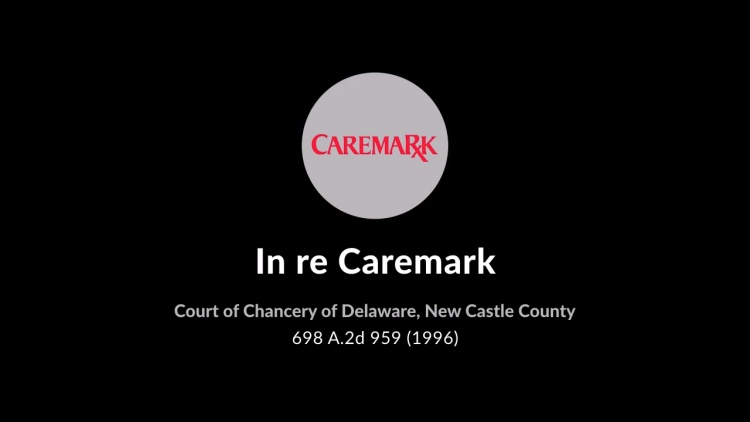In re Caremark International Inc. Derivative Litigation
Delaware Court of Chancery
698 A.2d 959 (1996)
- Written by John Caddell, JD
Facts
Caremark International, Inc., a health-services company, was the subject of a major federal criminal investigation. The company allegedly violated laws that prohibited healthcare companies from paying doctors to refer Medicare or Medicaid patients to their services. Prior to 1991, Caremark had a regular practice of entering into financial arrangements with referring doctors that were not clearly prohibited but that raised legal questions. However, Caremark’s board issued guidelines that attempted to clarify what sort of arrangements were acceptable. After it was notified of the federal investigation, the board announced that it would no longer pay certain types of fees to Medicare and Medicaid doctors. The board also employed an outside auditor to review its practices for business and ethical concerns. The federal investigation resulted in indictments of junior officers in 1994. The officers took plea deals to lesser charges, and Caremark paid roughly $250 million in civil and criminal penalties. A group of Caremark shareholders (plaintiffs) promptly brought derivative suits, alleging that Caremark’s directors (defendants) breached their duty of care by failing to adequately oversee the conduct of Caremark’s employees, thereby exposing the company to enormous civil and criminal penalties. The parties negotiated a settlement. In the settlement, the board did not agree to any monetary penalties; it simply agreed to implement a number of more cautious policies moving forward, such as the creation of a compliance-and-ethics committee.
Rule of Law
Issue
Holding and Reasoning (Allen, J.)
What to do next…
Here's why 907,000 law students have relied on our case briefs:
- Written by law professors and practitioners, not other law students. 47,100 briefs, keyed to 996 casebooks. Top-notch customer support.
- The right amount of information, includes the facts, issues, rule of law, holding and reasoning, and any concurrences and dissents.
- Access in your classes, works on your mobile and tablet. Massive library of related video lessons and high quality multiple-choice questions.
- Easy to use, uniform format for every case brief. Written in plain English, not in legalese. Our briefs summarize and simplify; they don’t just repeat the court’s language.





